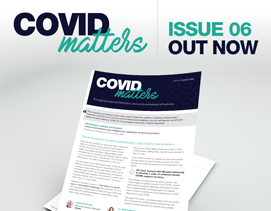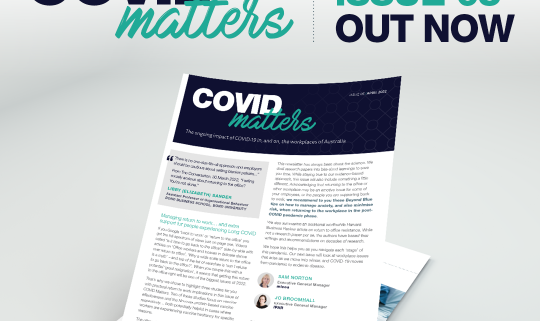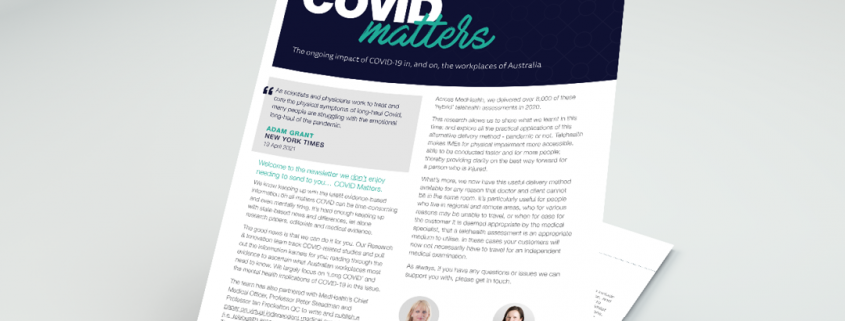The art of science: Towards understanding Long COVID in the workplace
COVID Matters Edition 6
“This is science as we’re living it, and it’s quite unusual. People like myself are constantly looking at what is happening around the world, and if you look at medical journal databases, you can see there are over 250,000 articles out now in relation to COVID-19. It’s impossible to keep track of what is happening.”
Professor Adrian Esterman
Chair of Biostatistics and Epidemiology, University of South Australia (as quoted in mamamia.com.au on 5 April 2022)
When we first launched the COVID Matters newsletter in December 2020, we undertook to track research and studies on COVID-19 and its impact on long-term health, mental health, neurological conditions, fatigue-related issues, workplace risk and changes to the Australian labour market. Two years later, we are still doing just that.
Edition 6 of COVID Matters looks specifically at Long COVID studies, distilling them into bite-sized learnings to save you time.
Long COVID is where our experience supporting people through illness and injury to return to work can come into play as a practical support for your organisation and people.
We have teamed up with Monash University to develop a suite of evidence-based COVID support services. This includes a screening tool for when a person with COVID might be heading towards Long COVID – and to define when you should seek early intervention for them. Plus, a tailored health coaching program to support return to work for people who are impacted by a COVID diagnosis or Long COVID.
Please reach out to your local IPAR representative to learn more.



